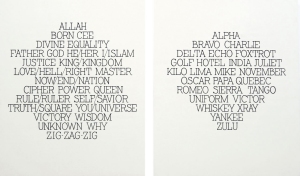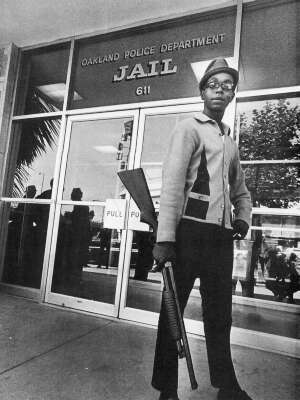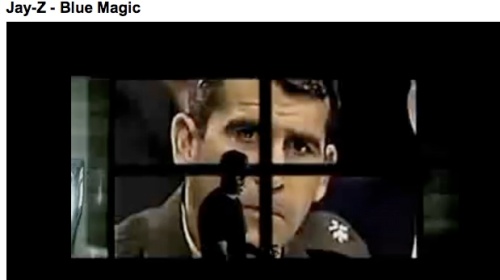The power of the tongue is life and death.
– Clipse, “There Was a Murder”
Stop Snitching. Call it a movement, call it a criminal conspiracy, call it a gimmick to sell crap cd/dvds & tshirts. For those who’ve slept, and for my own enjoyment of the art form, I offer a brief compendium of definitions:
“stop snitching” (stop snich-ing) | slang
1. “never let shit about G’s leave your mouth.” [Wayne, 2007]
2. “the hustler’s dedicate”: “rather hung yourself than turn state’s evidence.” See also “Mum’s the word” [Clipse, 2009]
3. “don’t tattletale, the number one ruley” [Mac Dre, ] [RIP]
4. “when you get shot up, please don’t rat, don’t tell on that man, go shoot his ass back.” [Uncle Murda, 2009]
5. “stop talking to the cops.” [the Game, 2006]
 If Stop Snitching is a code, it is also an explicit threat of violence against police informants. My favorite example being Uncle Murda: If you snitch, he’ll kill your mother, your grandmother, and your great-grandmother. (He’ll kill them!) He will rap with his boys next to your corpse. (You’re dead!). Lil Wayne (less convincingly) offers his Automatic to the cause; Clipse – in a rather weary tone – seem resigned to the objective fact that There Will Be a Murder in the event of a snitching. Other rappers (who will go unnamed here because I don’t think they’re terribly good) get a lot more personal with their snitch-murder fantasies. And in a particularly lame development, the storied tradition of rap beef has of late been reduced to calling other rappers Snitches, and telling them to Stop. (see generally, Cam’ron – prepare for yawning).
If Stop Snitching is a code, it is also an explicit threat of violence against police informants. My favorite example being Uncle Murda: If you snitch, he’ll kill your mother, your grandmother, and your great-grandmother. (He’ll kill them!) He will rap with his boys next to your corpse. (You’re dead!). Lil Wayne (less convincingly) offers his Automatic to the cause; Clipse – in a rather weary tone – seem resigned to the objective fact that There Will Be a Murder in the event of a snitching. Other rappers (who will go unnamed here because I don’t think they’re terribly good) get a lot more personal with their snitch-murder fantasies. And in a particularly lame development, the storied tradition of rap beef has of late been reduced to calling other rappers Snitches, and telling them to Stop. (see generally, Cam’ron – prepare for yawning).
Predictably, there’s been a lot of critics of this phenomenon: folks who have been victims of crime or are vulnerable to it, law & order types, right wing pundits, and – surprise – law enforcement.
Defenders of Stop Snitching have offered forth a number of defenses in return: the doctrine has a softer, philosophical side (“If a man talk about another man while that man ain’t present, a man don’t listen/ They throwin brick but they hands is missin” – L.W.); the code only applies to those already involved in the criminal enterprise. (“Don’t do that crime / if you can’t do that that time / I’m serious: be true to yourself dawg / you ain’t got to be a thug dawg/ do something else dawg.” – Uncle M); The rule only restates common codes of loyalty between friends.. (“Yo own people could be them people / No glasses can help you see them people / They around too many evil people” – L.W.)
There’s also a political defense of the Stop Snitching movement. One particularly fun iteration of this by Immortal Technique was recently published in XXL :
If the police want people to start speaking to authorities, maybe they should start speaking to authorities. They want people to take the stand? Maybe they should walk around the blue wall of silence and take the stand themselves … I’ve never seen an officer take the stand against another one and be like, Yeah, your honor, I saw my partner bash that kid’s head in ’cause he was Black and had an attitude. I’ve never heard one of them say, No, we had no reason to stop them. We just do that all the time on the highway in Jersey and hope we get lucky.
And what about the government? You [ever] heard the Feds snitch on each other with it resulting in shit? What about the CIA? They kill snitches. Who ever heard Col. Oliver North—who was funneling drug money and weapons to the Contras in Nicaragua—snitch on Reagan? Fuck outta here, nigga. You never heard of anything like that. You want us to snitch? You snitch, muthafucka. You want crimes solved? So do we. You want truth? Guess what? We do too. Malcolm X. Martin Luther King Jr. Tupac. Biggie. Agent 800. Gulf War Syndrome. Cancer clusters in the ’hood. JFK. 9/11. Anthrax. The circumstances behind the War in Iraq. The funding of the Taliban by America up to five months before Sept. 11, 2001. Start there. We should start a “Start Snitching” campaign for the government to come to terms with what they’ve done to us before we point the finger at another brother.
Much as I’d like to be totes sympathetic to this inflammatory morsel, I can’t really get behind the main premise that one Justice necessarily precedes another, which is to say, I’m not sure that the hypocrisy of Stop Snitching’s gov’t detractors is really enough to justify a standstill of law enforcement in the country writ large. But I sense that Tech is also making a structural argument that snitching contributes to the existing inequity of the criminal justice system … and so any government rat is also circumstantially a traitor of his people.
 N- can’t you see?
N- can’t you see?
Sometimes your words incarcerate me…
Can’t say shit, that’s basic – they wanna send a N- back to the slave ship
– Ice Cube, “Stop Snitching
They want Latinos and Blacks to snitch on  each other? They want the ’hood to snitch on itself? I spent an extra six months locked up and a month in the hole over saying nothing to the police, even after my co-defendant sang like a fuckin’ canary…I take that snitching shit personally. They didn’t break me or make me talk. I wasn’t for sale. And I don’t think that our loyalty as a people should be either.
each other? They want the ’hood to snitch on itself? I spent an extra six months locked up and a month in the hole over saying nothing to the police, even after my co-defendant sang like a fuckin’ canary…I take that snitching shit personally. They didn’t break me or make me talk. I wasn’t for sale. And I don’t think that our loyalty as a people should be either.
– Immortal Technique
On the real, it’s not like rappers are the only people noticing the perverse criminal justice implications of snitching. The Innocence Project identifies Snitches as one of their six primary causes of false convictions. According to their data, 15% of folks exonerated on the basis of DNA evidence were convicted using snitch testimony. A study by Northwestern University Law School’s Center on Wrongful Convictions found that snitches are responsible for 46% of wrongful capital convictions from false testimony. According to my data, 100% of the 3 individuals (not exactly statistically significant, I concede) I know of that were wrongly convicted and exonerated were convicted on the basis of snitch testimony (and one involved some super-shady police hypnosis…).The Canadian government’s also done some studies, but we’re in Uh-Murk-a here, and we don’t mess with Canada, Drake or no Drake. (JK it’s on the Innocence Project website).
A civilized and free society would not be discussing, much less seriously debating, any proposal to enlist private citizens to act as federal neighborhood snitches.
– Rep. Ron Paul
Where the Stop Snitching campaign fails, though, is the limited reach of its vision. A system where snitching works is, according to its rhetoric, a failure of manhood, a proliferation of fake hustlers, a moral disintegration in the brotherhood of thug. It does not contemplate that a system of snitching is a system that gives prosecutors unbridled power to decide whether an individual gets let off the hook or has the book thrown at him; not to mention the skewing of our sentencing laws such that the book that gets thrown is crazy heavy. Or, to use the ever pithy words of Public Broadcasting, Stop Snitching does not contemplate how the “fundamental shift in the country’s anti-drug laws — including federal mandatory minimum sentencing and conspiracy provisions–has bred a culture of snitching that is in many cases rewarding the guiltiest and punishing the less guilty.”
In other words, Stop Snitching is almost Republican in the individualism of its ethos, which comes at the expense of a robust structural account of things. Which honestly, in unsurprising, given how much of the hustler / don / rap mogul narrative runs parallel to the bootstraps American Dream narrative.
Stat: 97% of convictions occurring within a year of arrest were obtained through a plea. About 9 in 10 of those pleas were to a felony. In other words, everything gets settled out of court, sans jury. So why are the anti-snitching songbirds so concerned with the ability of informants to “turn state’s evidence” when such a tiny tiny margin of criminal convictions actually go to trial? Isn’t the real problem pleading? Is it that rappers and Youtube video producers and Tshirt manufacturers compose the entirety of the 3% of individuals who turn down the plea, actually go to trial on their charges, and are subsequently convicted on the basis of snitch testimony? Or is it, as I prefer to think, simply that the movement got wrapped up in its own macho bluster, and got tagged with a misnomer that’s snowballed?
If you out there thuggin in the streets, doin’ what you do,
And you get jammed up
Don’t give up your mans in the muthafucka
Try to cut a CO or something when you in jail – Start a revolution
Don’t be no muthafuckin snitch; Don’t do the police job!
– Uncle Murda, “Please Don’t Snitch”
Why not a Stop Pleading movement instead? Without it we’re left in the odd situation where it’s unacceptable to take a light plea in exchange for snitching on someone else, but totally kosher to snitch on yourself for the same. Imagine a world without pleading. Cops would actually need probable cause to hold someone. Prosecutors would have to actually prove things beyond a reasonable doubt. The machinery of criminal justice wouldn’t be able to function by repeatedly targeting the same community. Biggie AND his woman would be in prison. Prisons would be crazy overcrowded. The system would be overloaded. Folks in power would have to start talking about revamping the laws to cut down on incarcerating nonviolent offenders. What if everyone Stopped Pleading for a year? Like a 12 day labor strike, but for criminal, rather than economic justice. Shit, if I had the cred and I felt ok about telling the world to man up and do the time, sick grandma in the hospital and kids to feed irregardless, I’d seriously propose it. I think it’s a more workable revolution, at least, than cutting a CO…


 Wrapped up in this whole idea of a “down bitch” is a more insidious version of the whole “Stop Snitching” business. Whereas snitching is forbidden to men because it would be a violation of a social contract or an honor code (or depending on the song, potentially a death sentence) — for women, the refusal to snitch is a profession of
Wrapped up in this whole idea of a “down bitch” is a more insidious version of the whole “Stop Snitching” business. Whereas snitching is forbidden to men because it would be a violation of a social contract or an honor code (or depending on the song, potentially a death sentence) — for women, the refusal to snitch is a profession of 

 My friend Nick disagrees strongly with me on this point — he thinks it’s all about appealing to the
My friend Nick disagrees strongly with me on this point — he thinks it’s all about appealing to the 